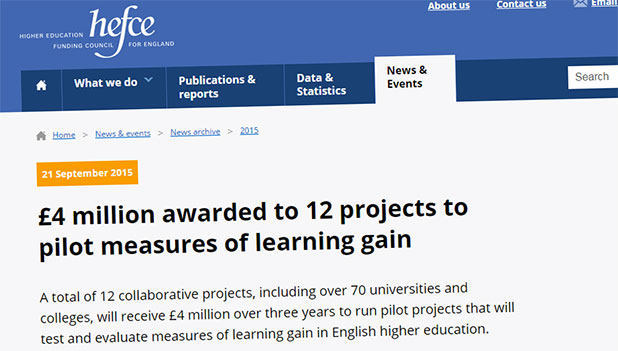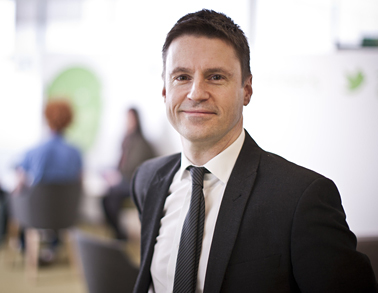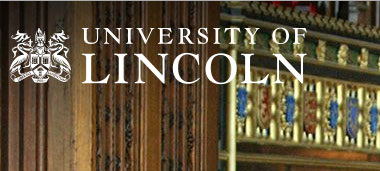Uni successful in £350k bid to measure students’ ‘learning gain’

Mon, 16 Nov 2015 13:46:00 GMT
The University’s Careers and Employability Service will work with colleagues at Lincoln to survey hundreds of students who undertake additional activities alongside their course
WHEN students go the extra mile and take part in university activities beyond the course curriculum, does this boost their all-round abilities, self-confidence and employability? The University of Huddersfield is taking part in a £350,000 research project that aims to settle the issue.
 Over the next three years, the Careers and Employability Service at Huddersfield, in partnership with its counterpart at the University of Lincoln, will survey hundreds of undergraduates as they complement their courses with a wide range of additional activities, such as stints as Student Ambassadors, working with the Students’ Union or Computing and Library Services, or participating in societies and sports.
Over the next three years, the Careers and Employability Service at Huddersfield, in partnership with its counterpart at the University of Lincoln, will survey hundreds of undergraduates as they complement their courses with a wide range of additional activities, such as stints as Student Ambassadors, working with the Students’ Union or Computing and Library Services, or participating in societies and sports.
The goal is to measure their ‘learning gain’ – which is defined as “the improvement in knowledge, skills, work-readiness and personal development made by students during their time spent in higher education”.
The Higher Education Funding Council for England (HEFCE) announced that a total of £4 million was available to enable universities to research learning gain. Out of 49 bids, 12 collaborative projects involving 70 institutions – some of them in large consortia – have been awarded funding. The Huddersfield-Lincoln project is one of the successful applicants, and it will receive £350,000 from the HEFCE pot.
“We work quite closely with Lincoln on a number of other things and we felt that we could put together an innovative approach to gauge learning gain,” said Stephen Boyd (pictured right), who heads the University of Huddersfield’s Careers and Employability Service.
 “We are particularly interested in the idea of learning gain in relation to employability enhancement,” he continued.
“We are particularly interested in the idea of learning gain in relation to employability enhancement,” he continued.
Having been awarded HEFCE funding, the two universities have appointed a project manager and assistant. There will also be four part-time research assistants.
Two methodologies – a self-assessment skills audit and a situational judgment test – are being developed, said Mr Boyd, and there will be sample groups of students from a wide range of courses. Participants in the research will benefit, he added, because it would enable them to articulate their self-development and learning gain.
“We will keep an open mind and let the research itself generate the findings,” said Mr Boyd, “but we suspect that there is significant distance travelled by students during their studies and that involvement in activities above and beyond their actual course has a positive impact.”
In addition to providing funding for the 12 collaborative projects, HEFCE will also organise national conferences and meetings on learning gain. Its Chief Executive, Madeleine Atkins, said: “The outcomes from this work have the potential to support measurement and indicators at institutional and even national level, but also crucially to improve learning and teaching practice in universities and colleges for the benefit of students.”
Universities and Science Minister Jo Johnson commented that the projects “will help assess teaching quality and excellence and ultimately provide better value for all students”.







